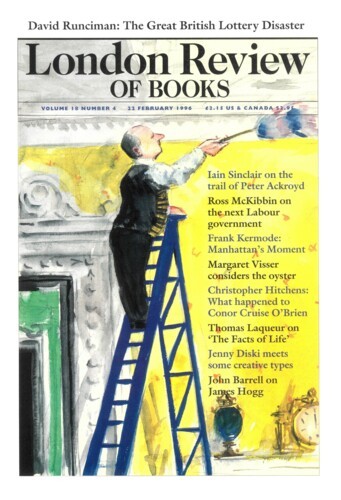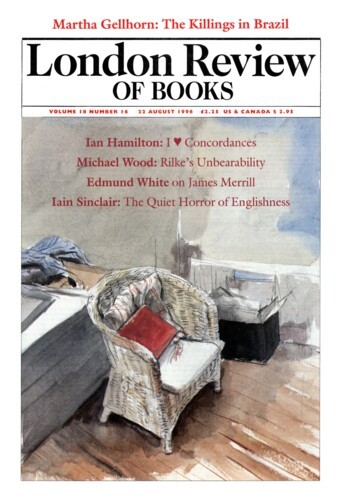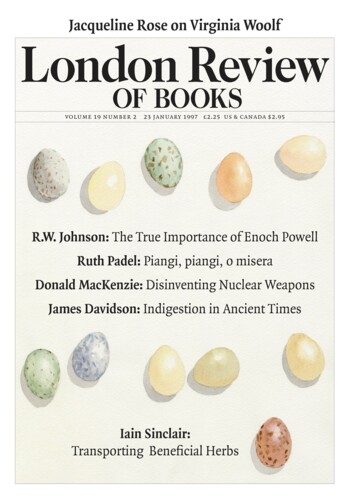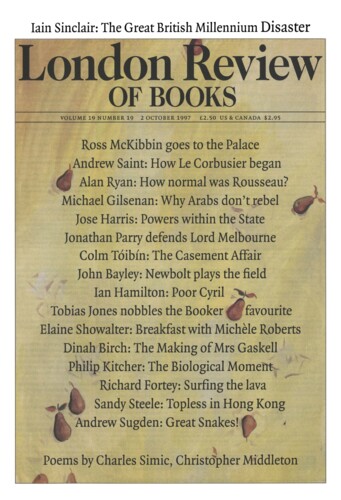Customising Biography
Iain Sinclair, 22 February 1996
A recent episode in a jobbing writer’s life found me interviewing Carolyn Cassady (author of Off the Road: Twenty Years with Cassady, Kerouac and Ginsberg) in her comprehensively occupied Belsize Park flat. The unreality of this situation – talking, shoulder to shoulder, with one of the Beat Generation’s best-preserved icons – was ameliorated by the fact that our paths had crossed a number of times over the last fifteen years. (Once, during a strained public conversation in Waterstone’s, Charing Cross Road, we had been interrupted by a foam-flecked out-patient yelling: ‘How often do you sleep with prostitutes?’) But even now, at some level, I couldn’t accept it: that this courteous and sharp-witted lady was the one who had been, rather reluctantly, photographed with Neal Cassady, and who had herself been responsible for some of the most familiar images of Kerouac and Cassady in archetypal buddy-buddy poses. I guess that I’m temperamentally ill-equipped to deal with these confusions. Fiction, biography, journalism: they will insist on muscling in on territory that doesn’t, strictly speaking, belong to them. Carolyn, in stately exile in North London, calls into question the eternal present-tense rush of On the Road. They can’t both be true, not at the same time. That plural consciousness is too much to accept. But Carolyn is, self-evidently, very much alive, and feels obliged, as a duty, to swoop on inaccuracies perpetrated by career biographers, manipulations that nudge her out of the official portraits. Biography is serious business these days. It underwrites the republication of a sanctioned backlist. It provokes movie deals that, in their turn, create a climate of excitement which finds Johnny Depp paying $ 15,000 for what purports to be Jack Kerouac’s old raincoat. The vendor cursed himself for letting the relic go so cheap: a soiled handkerchief was subsequently found in the pocket which could have been sold separately, or used to bump up the price tag by another couple of grand.’





